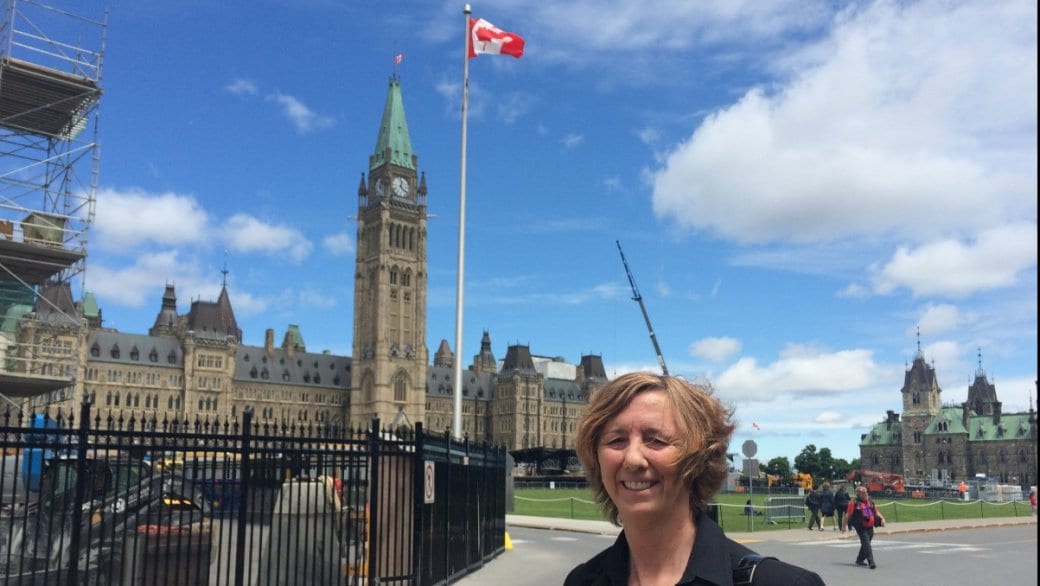The federal government faces increasing pressure to deliver on its promise to right historical wrongs against LGBT Canadians, from both activists and members of Parliament — including some Liberals.
On Oct 31, 2016, lawyers filed two class-action lawsuits, seeking at least $600 million in compensation for LGBT Canadians pushed out of the military and public service. Meanwhile, the House defence committee unanimously voted on Oct 25 to ask the government to have the military’s ombudsman probe the issue.
Researchers estimate that 800 to 1,200 Canadians were dishonourably discharged due to homosexuality, until the practice was banned in 1992. During the Cold War, authorities feared LGBT soldiers could be blackmailed by foreign enemies into divulging confidential information.
At the Nov 1 press conference, Martine Roy recounted starting her military career as a medical assistant at age 19, and being questioned by investigators about her sex life. “At one point they said that if I was honest, they would keep me,” she recalled. “To save myself, I told them the truth, which was that I was confused.”
Roy was promoted at age 20 and given a top-secret clearance, but four months later she was dishonourably released for homosexuality. “At 20 years old, this is a trauma,” she said. “You’re scared all your life.”
Three decades later, after 10 years of supporting other LGBT Canadians who have faced discrimination, Roy said she needs justice. “At this point, I cannot go further until my matter is taken into consideration,” she said.
Roy and another soldier ousted by the military spoke at the Nov 1 conference, though they both shared similar stories in the same Centre Block room during the June 13 launch of an extensive report by Egale Canada, which outlined how the government should address the issue.
“People go in the media — left, right and centre — to tell their story. They’re getting traumatized again, then we send them back home and we tell them, ‘We’re going to look into it,’” she said. “It’s time now to repair what we did.”
On Oct 31, a lawsuit was filed in a Montreal court for former government employees in Quebec who feel they were wrongly pushed from the public service, while a similar suit filed in Toronto involves Canadians outside Quebec, led by constitutional lawyer Douglas Elliott.
“We’ve had no action; we’ve just had nice words. And we’re dealing with an aging population,” said Elliott, who is hoping to reach a settlement before starting a court case.
Elliott’s remarks come a month after nine members of Parliament voted unanimously for a motion asking Defence Minister Harjit Sajjan to have the military’s ombudsman, “revise the service records of LGBTQ members of the Canadian Forces who received dishonourable discharges from the military based on their sexual orientation or gender identity.”
NDP MP Randall Garrison noted that all five of the committee’s Liberal MPs supported his motion.
“Having the unanimous support of all three parties in the committee, I hope will encourage the minister to act quickly, to right this long-standing injustice,” he told Daily Xtra.
In a phone call with reporters shortly after the Oct 25 motion, Sajjan wouldn’t say whether he’d get the military ombudsman involved.
“We need to make sure that it’s not just one department looking at this issue. It’s going to be at a much wider level, so we have a much greater impact,” he said. “We want to make sure that we do this right.

 Why you can trust Xtra
Why you can trust Xtra


